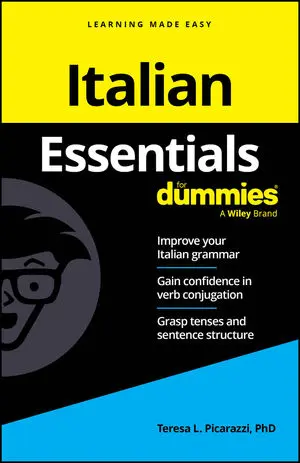How do you ask basic questions in Italian? Well, Italian interrogative words mean the same as they do for English: who, what, when, where, why, and how. By knowing basic Italian interrogatives, you'll be able to express your questions, even without an extensive vocabulary.
For example, say you're at a Italian street market and you want find a beautiful antique clock. If you know enough vocabulary, you could say "Quanto è questo orologio antico?" ("How much is this antique clock?"). But if you don't know the correct words, you can also point to the clock and simply say "Quanto è?" and the seller will understand that you want to know the price.
Chi? (Who?)
Che?; Cosa?; Che cosa? (What?)
Quando? (When?)
Dove? (Where?)
Perchè? (Why?)
Come? (How?)
Quante?; Quanti? Quanto?, Quanta? (How much?; How many?)
Quale? (Which?)
C'è? Ci sono? (Is there? Are there?)
Cosa c'è means "What is there?" or "Is there . . . ?," but it can also mean "What's wrong?"
In addition to the standard interrogatives, you may also form questions simply by changing the tone of your voice. For example, Avete mangiato bene (You ate well) becomes Avete mangiato bene? (Did you eat well?).
Although most of these examples, don't' include the courteous "excuse me" and "please", you should get into the habit of beginning your sentences with scusi (formal) or scusa (informal), and then adding per favore or per cortesia at the end.
Let's look at some different ways to put these question words into a variety useful phrases.
Scusa. parli inglese? [Informal]; Scusi. parla inglese? [Formal] (Excuse me. Do you speak English?)
Me lo traduce, per cortesia? [Formal]; Me lo traduci, per cortesia? [Informal] (Will you translate it for me, please?)
Può parlare più lentamente? [Formal] (Can you speak more slowly?)
Può ripetere, per favore? [Formal] (Can you please repeat that?)
Perchè fanno così? (Why are they doing that?)
Perchè sei in ritardo? (Why are you late?)
Chi è? (Who is it?)
Altro? (Anything else?)
Desidera altro? (Would you like anything else?)
Pronto! Chi parla? (Hello! Who's speaking? [Answering your phone.])
Che cosa è questo? (What is this?)
Cosa fai? (What are you doing?)
Com'è quel ristorante? (How's that restaurant?)
C'è un problema? (Is there a problem?)
Qual è il cambio di oggi? (What is the exchange rate today?)
Dov'è un Bancomat? (Where is an ATM machine?)
Dov'è la stazione? (Where is the train station?)
Può mostrarmi dov'è? [Formal] (Can you show me where it is?)
Quale strada devo prendere? (Which street should I take?)
Dove sono i miei amici? (Where are my friends?)
Scusi/Scusa. dov'è il bagno? (Excuse me. Where is the bathroom?; The bathroom, please.)
Dove si trova . . . ? (Where is . . .?)
A che ora bisogna lasciare la camera? (What time is checkout time?)
A che ora chiudete? (What time do you close?)
Dov'è il mercato coperto? (Where is the covered market?)
Quanto? (How much?)
Quanto costa?/Quanto è? (How much does it cost?)
Scusi, che prezzo fa questo? (Excuse me, how much is this?)
Che orario fate? (What are the store's hours?)
To turn a sentence into a question, sometimes you have to reverse the word order and place the subject at the end of the sentence. For example, Gli studenti sono bravi (The students are smart) becomes Sono bravi gli studenti? (Are the students smart?).






